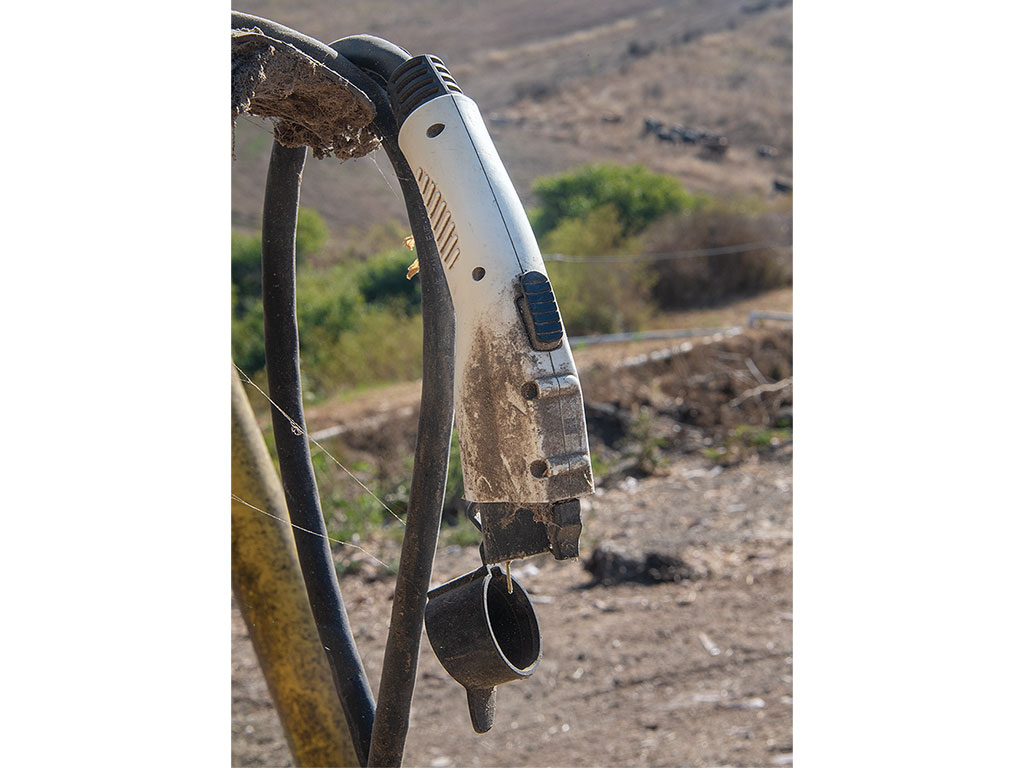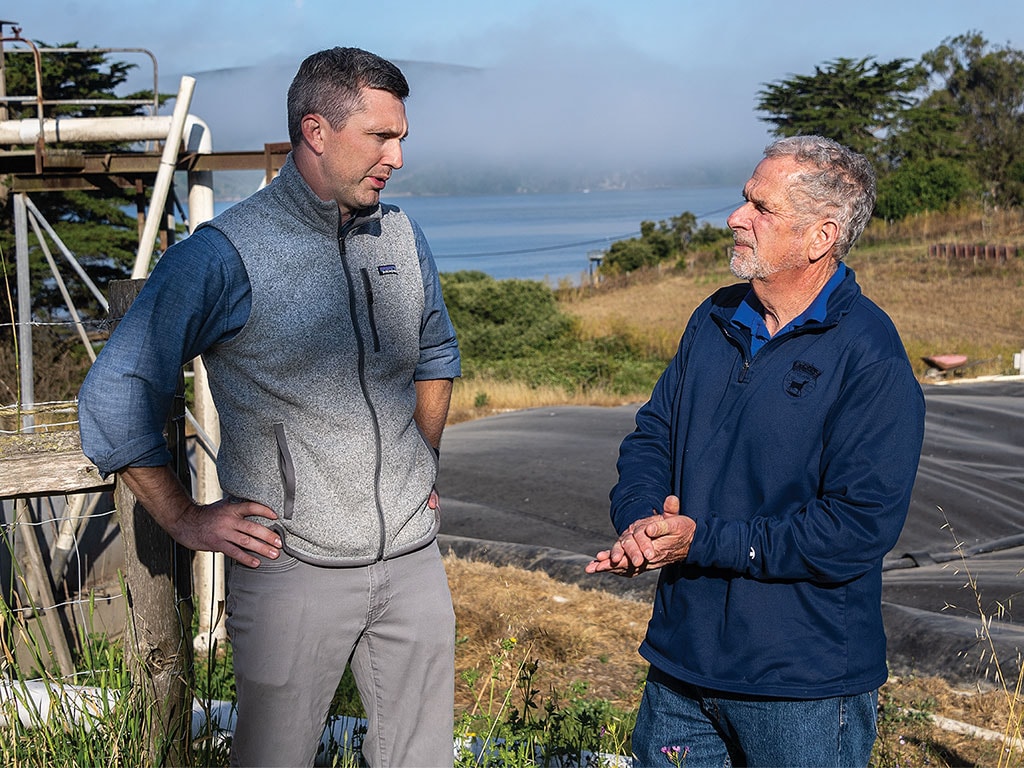Agriculture, Sustainability January 01, 2025
Poop to Power
Straus Creamery scales methane projects to small dairies.
by Steve Werblow
Albert Straus has long been a leader in keeping small, northern California farms viable—Straus Family Creamery™ has been a key market for organic milk, and the Straus Dairy Farm has led on innovation and policy. Eager to learn from his success, organic farmers worldwide have sought Straus' perspective.
Straus Dairy Farm's Poop to Power program demonstrates the potential for scaling methane digesters to fit the 100-to-550-head farms that supply the creamery, then putting their electricity to work powering vehicles on the farm. It's part of a suite of practices ranging from composting manure solids to experimenting with feeding red seaweed to reduce enteric methane production.
Good business. Ultimately, Straus' goal is for his milk supply network to be carbon-neutral by 2030. That's not just good for the environment, it's good for business, he notes. Adopting climate-smart practices cuts costs and gives producers a positive story to share with neighbors. Straus is a strong proponent of education, emphasizing that "organic dairy farming is an essential solution to climate change."
The industry depends on it.
"We exist to help the local organic dairy industry thrive," explains Joseph Button, Straus Family Creamery's vice president of sustainability and strategic impact. "And so a few years ago, we decided to launch a brand-new dairy sustainability incentive program. We have this 2030 climate-neutral goal, and we wanted to reward farmers for going above and beyond organic practices and really starting to think about how they can transform the perception of dairy being bad for the climate to dairy being great for the climate."
In 2023, the first year of the program, Straus Family Creamery paid out $250,000 in incentives for adopting climate-smart practices. Participating producers could earn up to 4 cents per component pound for adopting the whole suite of practices.
"They're starting to figure out on their own how it will work for them on their farm—every context is different," Button says. "So it's important to not just tell the farmers what to do, but to partner with them for certain solutions that fit their needs."
Fit has been particularly tricky with methane digesters.
Button points out that until recently, methane digesters were either scaled for 1,500-plus-head Central Valley dairies or for tiny dairy herds in India or Africa.
"There was a moment where we had 'too big' and 'too small,'" he notes. "Finally the market is seeing that there's this huge opportunity—not just in California, but perhaps across the country—for this type of scale."
Above. Electric vehicles in Straus Dairy Farms' Poop to Power program include a loader, feed truck, and cars fueled by burning captured methane. Albert Straus (right) checks in with the operation's sustainability VP, Joseph Button.
Example. Straus used a 275-head farm, which has been in his family since 1950, as a laboratory for manure management. He first covered the lagoon in 1999, and has powered the dairy and its electric vehicles for 20 years. A 2019 partnership with BMW, which was eager for a green source of power for its electric cars, provided the capital and the spotlight to allow Straus to level up on digesters.
In 2022, Straus reached out to digester companies to find a partner willing to figure out how to build a manure digester for a farm of his operation's size.
It's not as simple as just using smaller pipes, notes Button.
"The biogas production is seasonal, because in the spring, the cows spend most of their time out in the pasture, and we don't collect as much manure," he says.
The key is what Button calls "biogas booster tanks" next to the lagoon. Waste heat from the methane-powered generator warms the tanks' contents and helps increase gas production by 5 to 20%.
"The tanks hold around 20,000 gallons in total," Button explains. "It turns out when the tanks and manure can get up to 100 degrees, it's the perfect temperature to boost biogas production."
Straus and Button have spent countless hours navigating energy policy and permit requirements so their neighbors don't have to. The goal, says Straus, is to create a system that works for him and his network—and elsewhere, too.
"It's hard to have influence around the world unless you can create something locally," he says. ‡
Read More

RURAL LIVING, SPECIALTY/NICHE
Llama Drama on the City Lawn
Story time comes to life.

AGRICULTURE, EDUCATION
Eared Cattle Earn Swiss Bells
Zebu cattle tread lightly on highly erodible Swiss pastures.



